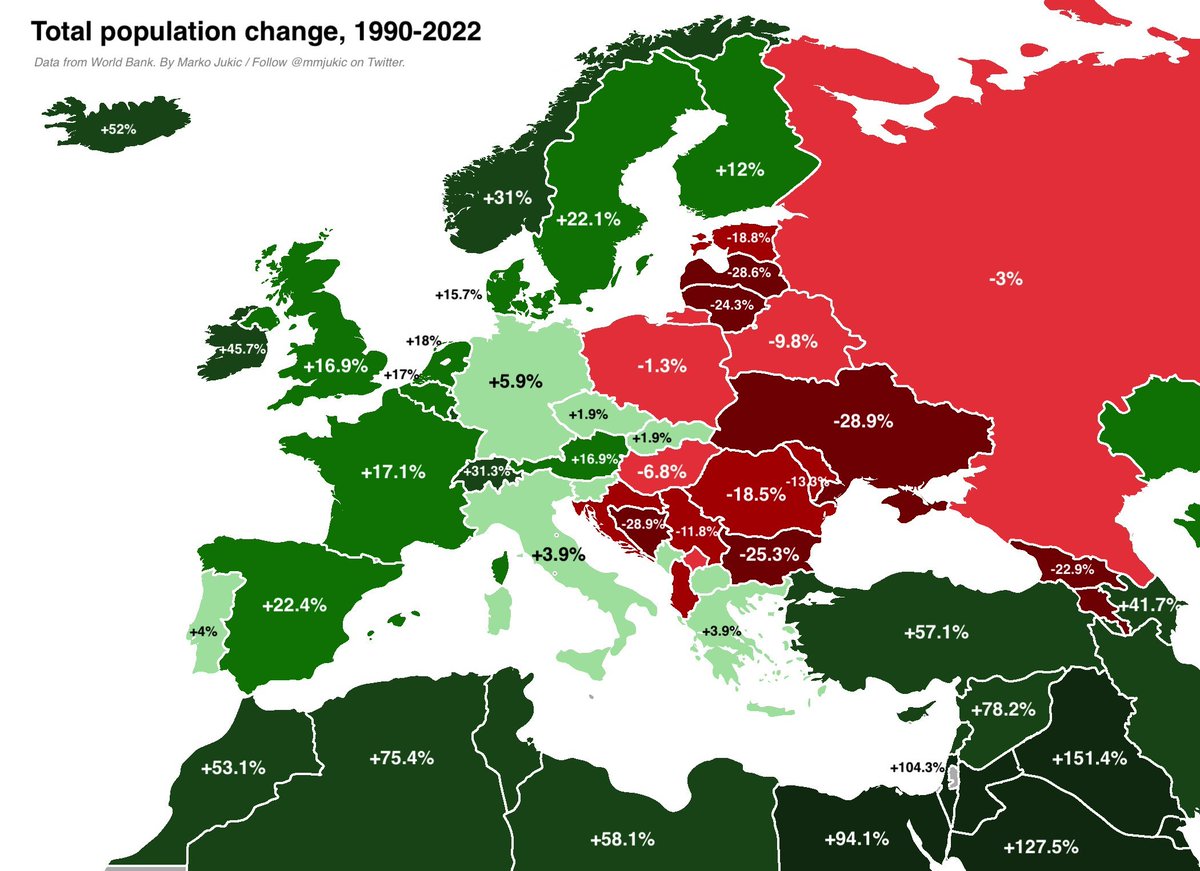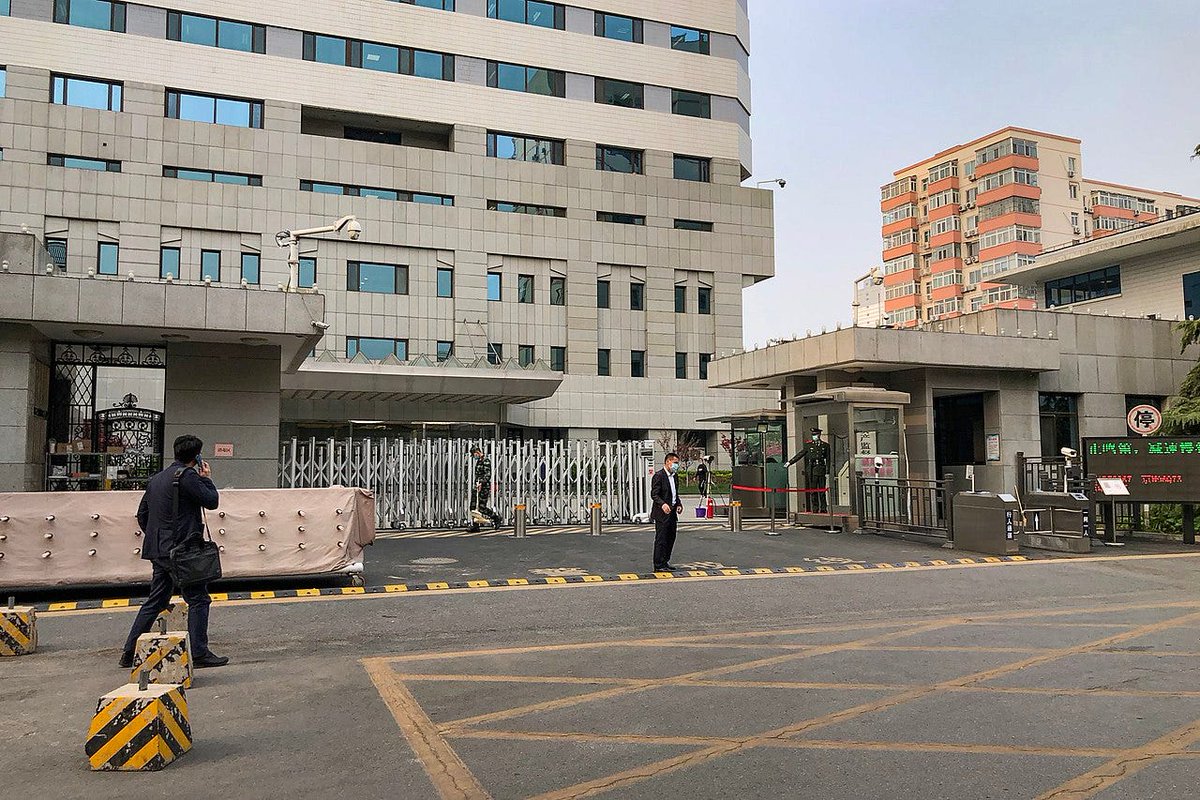Few economists bite the bullet that if immigration is good for the countries gaining people, emigration is bad for the countries losing people. 

There is a war of rich on poor: Depriving developing countries of the human capital they need to develop while simultaneously depriving them of cheap energy in name of environmentalism.
Interesting thread on this in the case of Eastern Europe:
https://twitter.com/mmjukic/status/1689639371073605633
It's been over 30 years since the transition from Communism!
Every relative gain Eastern Europe makes compared to the West is offset by losses due to depopulation.
Every relative gain Eastern Europe makes compared to the West is offset by losses due to depopulation.
People who take bad institutions as fixed and immutable are part of the problem.
It is outlier individuals that change less succesful countries into more succesful countries over time through reforming dysfunctional institutions and founding functional ones.
It is outlier individuals that change less succesful countries into more succesful countries over time through reforming dysfunctional institutions and founding functional ones.
Take those outliers away and the institutions as well as the countries remain broken.
Of course emigration is better for the people that leave. But even with the most extreme cases case 60-70% of the people stay. All of those people are worse off.
The idea that emigration will discipline a country to have better government or institutions is also a common assumption with no evidence.
If it doesn't pressure California to work better within the US why would it make Ukraine or Romania better?
If it doesn't pressure California to work better within the US why would it make Ukraine or Romania better?
It is of course fair to say personal rights are more important than economic development. But then let's be intellectually honest and make that argument.
Pretending this situation isn't damaging for underdeveloped economies and the people that live there does not safeguard anyone's rights.
I'm also dismayed how many people are quick to slander prosperus and free places like Poland, Czechia, or Estonia as Communist gulags or shitholes.
Eastern Europeans need to understand that Westerners will never respect us no matter what we do.
Eastern Europeans need to understand that Westerners will never respect us no matter what we do.
• • •
Missing some Tweet in this thread? You can try to
force a refresh

 Read on Twitter
Read on Twitter















